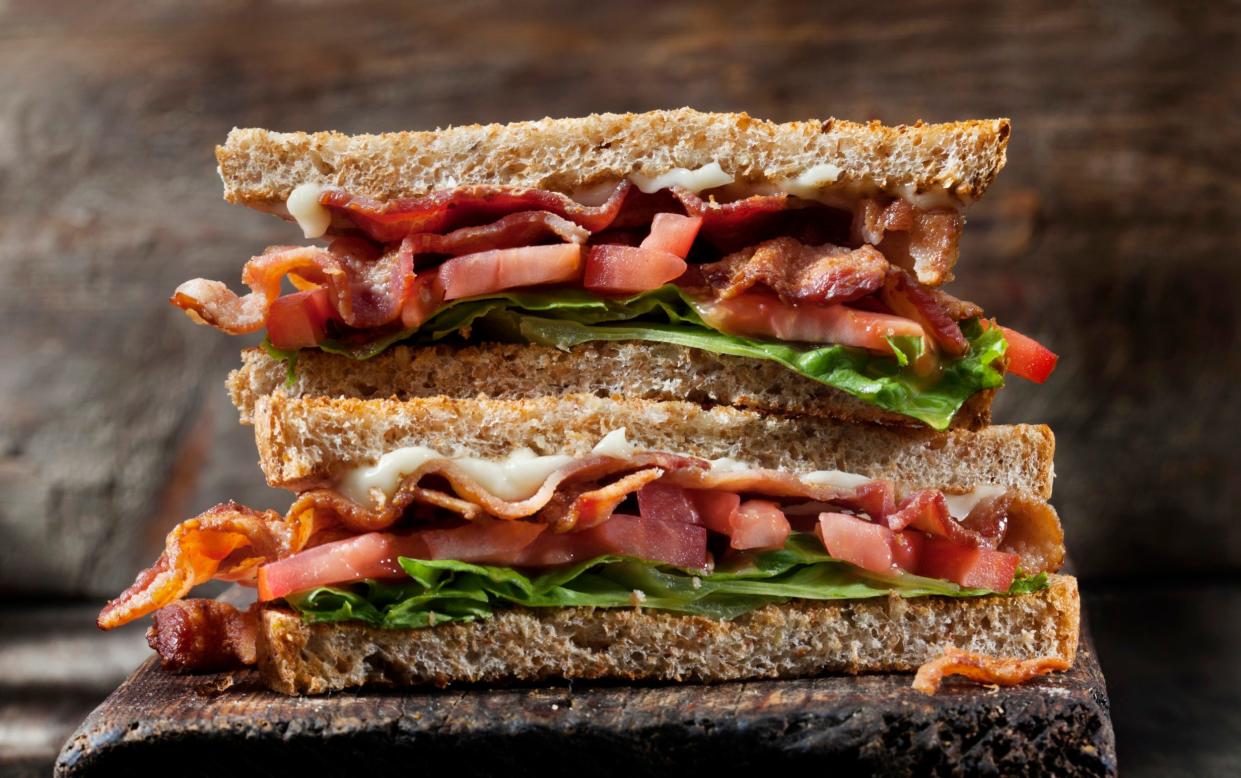These miserable busybodies will be the death of Britain

Why won’t Britain’s economy grow? Acres of newsprint have been expended on this unhappy subject. In my view, though, the answer is really quite simple.
We don’t want it to.
Just ask Emma Ayles, 47, of Weymouth in Dorset. Until recently, Ms Ayles had been running a little cafe called the Caddy Shack. This week, however, she was forced to close it down, following complaints from a grand total of three local residents. Apparently, they objected to “the smell of bacon” – and the noise of “teaspoons and teacups”.
Given that the frying of bacon produces the most delicious smell on earth, I can’t imagine who would have lodged such a ludicrous complaint – unless, say, Morrissey has recently moved into the area. And as for the supposed din produced by teaspoons and teacups, these residents must have remarkably acute hearing. Perhaps they’re actually bats.
Farcical though such complaints may seem, however, planning officials sided with the people who made them. The cafe, Ms Ayles was told, had caused “unacceptable harm” to its neighbours. As a result, she has had to make eight employees redundant.
This absurd story is modern Britain in microcosm. In almost every planning dispute, it seems, the moaners win – even if people’s jobs are at stake. When Liz Truss railed against “the anti-growth coalition”, this is exactly the sort of thing she meant. In a society that puts busybodies before businesses, it’s little wonder the economy has stalled.
In the Victorian age, when Britain ruled the world, our country was a roaring engine of industry and enterprise. These days, we seem to have had quite enough of all that. We’ve decided that we’ve already got enough houses. Enough railway lines. Enough businesses. Even enough cafes. Let the younger economies do all the building and growing. After centuries of hard work, we feel, the British economy has earned the right to put its feet up. It can now enjoy a well-deserved retirement, and, in due course, die peacefully in its sleep.
The name game
Thankfully, in the face of all this woe, the Treasury remains laser-focused on the issues that matter. Its staff, it’s been decided, should henceforth append their emails with special voice recordings in which they demonstrate how to pronounce their names. The reason for this, apparently, is that pronouncing people’s names wrongly can make them “feel unseen”. Whatever that means.
At any rate, it’s clearly a pressing initiative. What I love most about it, though, is that it’s being promoted by a civil servant called Sam – who has led the way by informing his colleagues that his name “rhymes with ‘ham’”.
Thank goodness he’s cleared that up. Otherwise, it could have led to all kinds of awkwardness at the office.
“Look, I’m awfully sorry to ask, my dear fellow, but how exactly do you pronounce your name? Is it Same? Shame? Sham? Salmonella?”
“Actually it’s pronounced ‘Sam’. Rhymes with ‘ham’.”
“Ah, I see! I do apologise. It’s just that I’ve never met a ‘Sam’ before. What sort of name is it, out of interest? Finnish? Korean? Uzbek? Togolese?”
Commendable as Sam’s efforts are, however, we don’t know for certain that the idea originated with him. It’s possible that it was suggested by the Treasury’s ultimate boss, Jeremy Hunt. After all, news presenters have been mispronouncing his name for years.
How Monty Python foresaw the gender wars
The row over males competing in female sports grows more bitter by the day. Just last week, a trans competitor called Kylie Small won a women’s race at the USA Cycling Cyclocross National Championship – having finished only 44th in a men’s race the previous season.
People with more traditional views about gender may be interested to hear that a new film has been released, satirising controversies of this kind. In Lady Ballers, male basketball players pretend to identify as women in order to compete in a female league.
The film’s choice of subject matter is certainly bold. Its creators, however, are not the first to venture into this deeply contentious area. The team behind Monty Python’s Flying Circus managed to get there over 50 years earlier.
In a sketch from the second series, broadcast in 1970, John Cleese plays a boxer who competes against a female opponent. As the match is in full swing, a pundit earnestly intones: “Providing they’re both perfectly fit, I can see nothing wrong with one healthy man beating the living daylights out of a little schoolgirl.”
The Monty Python team have always been celebrated for their fantastical imaginations. But I doubt that even they could have imagined that, in the year 2022, the BBC would be forced to apologise for interviewing a trans martial arts fighter who had boasted of knocking out women. Producers of the Today programme said they were unaware that the fighter in question, Fallon Fox, had once tweeted: “For the record, I knocked two out. One woman’s skull was fractured, the other not. And just so you know, I enjoyed it. See, I love smacking up TERFs [trans-exclusionary radical feminists] in the cage who talk transphobic nonsense. It’s bliss!”
Monty Python was supposed to be a surreal sketch show. Today, it feels more like a documentary.
Way of the World is a twice-weekly satirical look at the headlines aiming to mock the absurdities of the modern world. It is published at 7am every Tuesday and Saturday

